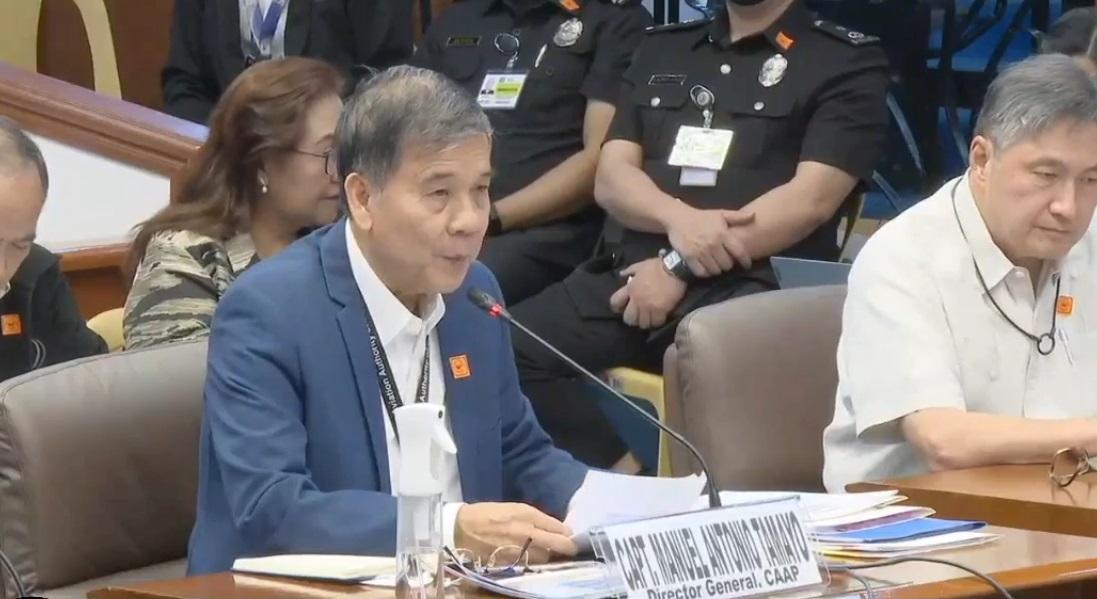CAAP takes full responsibility for New Year’s Day air traffic shutdown

The Civil Aviation Authority of the Philippines (CAAP) on Thursday said it takes full responsibility for power supply breakdown at its air traffic management center that resulted in the shutdown of Philippine airspace on New Year’s Day.
During the Senate Committee on Public Service’s hearing on Thursday, CAAP Director General Manuel Antonio Tamayo took the blame for the technical issue that grounded flights and stranded thousands of passengers.
“On behalf of CAAP and DOTr, we again extend our sincerest apologies to all those who were inconvenienced and greatly affected by this circumstance, which is something we are not proud of,” Tamayo said.
“We take this as a lesson and we manifest to this honorable committee and fellow Filipinos that we take full responsibility and accountability for what happened.”
Officials said that one of the uninterruptible power supplies (UPS) of the Communications, Navigation, and Surveillance/Air Traffic Management (CNS/ATM) failed and troubleshooting activities had to be done.
Once the system was reconnected to the power supply, however, warnings were released at around lunch time due to over-voltage as 380 volts were coming in instead of 220 volts. This then affected the very small aperture terminal (VSAT), which also had to be addressed.
At least 282 flights were canceled, diverted, or delayed, affecting thousands of passengers at the Ninoy Aquino International Airport (NAIA) and other airports nationwide.
“We commit to see through this ordeal and remain transparent in all our dealings and of service to the Filipinos in ensuring that our skies are safe,” Tamayo said.
At the same hearing, former Transportation secretary Art Tugade strongly denied that P13 billion in funds supposedly meant for CNS-ATM were diverted to other projects at the airport.
“Walang na-divert pagkat ang project na CNS/ATM is what we called a loan-funded project. Ibig sabihin ang proseso niyan, ang nangangasiwa is JICA,” Tugade said.
(There was no diversion of funds because the CNS/ATM is what we call a loan-funded project. That means the Japan International Cooperation Agency manages the process.)
The former Transport chief said that loans from other countries undergo tedious processing before being released to contractors and are not under the executive agency.
“There’s a process when the payment will be released. Were the funds released to the DOTr? No, the funds were released to contractors,” Tugade said. — BM, GMA Integrated News




